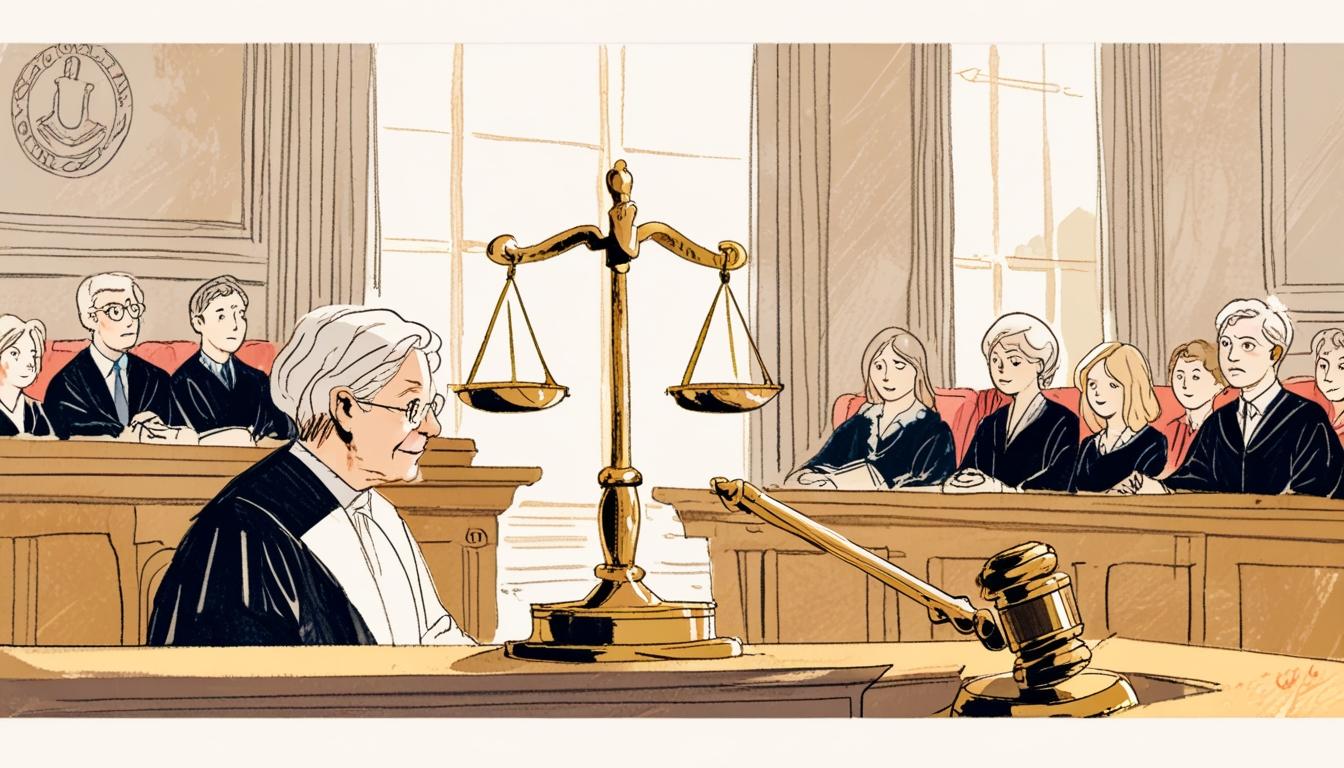The chairperson of the Equalities and Human Rights Commission (EHRC), Baroness Falkner, has responded robustly to backlash directed at judges following a pivotal Supreme Court ruling on gender rights, an issue that has ignited considerable debate within the UK. Baroness Falkner described the criticism aimed at the judiciary as "unacceptable," asserting that questioning the integrity of Supreme Court justices merely because some disagreed with the ruling is not warranted.
The Supreme Court ruling clarified the legal definition of "woman" as being based on biological sex. In alignment with this decision, the EHRC has released interim guidance stating that trans women, identified as biological males, should not have access to women's facilities in public places such as workplaces, shops, and hospitals. Nonetheless, the guidance emphasises that trans individuals should not be left without accessible facilities.
In an interview with The House magazine, Baroness Falkner remarked, "The ruling clarified the legal position and claims that trans people are not being listened to are simply incorrect." She acknowledged the polarised nature of the public discourse surrounding this issue and noted that parliamentarians often express the concerns of their constituents. "They will articulate whether they believe the law strikes the right balance between different rights," she added.
In light of the EHRC's interim guidance, a coalition of over 1,000 individuals, including prominent figures in the cultural sector, have signed an open letter expressing their inability to enforce the proposed changes regarding gendered facilities. This group includes the founder of the Vagina Museum, Florence Schechter; joint chief executives of the Welsh National Opera, Adele Thomas and Sarah Crabtree; and Andrew Given, director of Queer Britain museum.
The letter criticises the EHRC for overlooking the complexities involved in accommodating trans, non-binary, and intersex individuals, arguing that the guidance is impractical and fails to recognise the financial and operational challenges faced by many cultural venues. It states, "The majority of cultural venues – who are already facing significant financial challenges and are often based in listed and old buildings – are unable to magic up new toilet facilities." Furthermore, it asserts, "We are unable and unwilling to police the gender of people using our toilets."
The authors of the letter are calling for comprehensive consultations with the trans, intersex, and non-binary communities as well as stakeholders from cultural venues and public buildings to gain insight into the potential repercussions of such guidance.
Meanwhile, within the entertainment industry, notable figures such as Oscar-winning actor Eddie Redmayne, Joe Alwyn, and Harris Dickinson have joined a broader advocacy effort by signing a letter to various film and television bodies, encouraging support for the trans community. This letter aims to boost solidarity with the earlier open letter from UK writers that gathered over 2,000 signatures, which includes notable signatories like Doctor Who showrunner Russell T Davies and actress Michaela Coel.
As the EHRC navigates a complex landscape of public opinion, legal interpretations, and community rights, the ongoing dialogue indicates that the intersections of gender identity and societal norms will remain a focal point of discussion in the UK.
Source: Noah Wire Services
